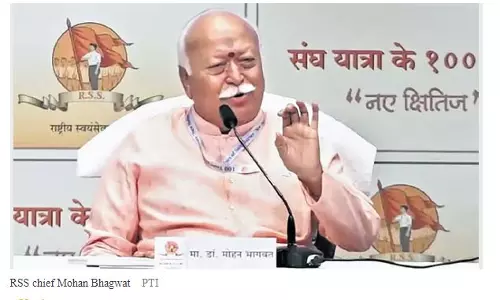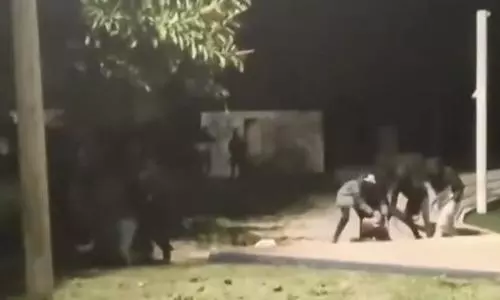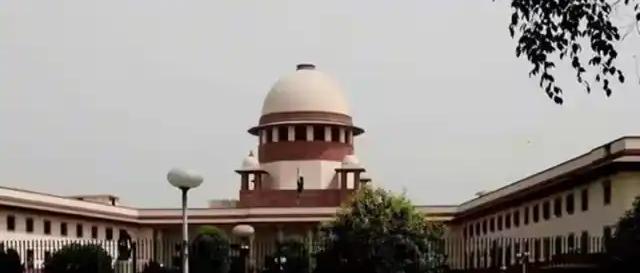
Revoking Article 370 not only by political executive; had Parliament backing, SC told
text_fieldsNew Delhi: During the fourteenth day of the Supreme Court's hearing on the appeals against the repeal of Article 370 on Friday, it was revealed that the Parliament also supported the political executive's decision to abolish the constitutional provision.
The phrase "recommendation" in Article 370 suggested that the permission of the Constituent Assembly of Jammu and Kashmir was not necessary for its abrogation, according to senior attorney Rakesh Dwivedi, speaking on behalf of intervenor Ashwini Upadhyay.
He argued that the entire Parliament, including Members of Parliament from Jammu and Kashmir, had been consulted and had given their consent to the move.
Dwivedi argued that the Constituent Assembly of Jammu and Kashmir had certain limitations during the framing of its constitution, unlike the Constituent Assembly of India. He said that the Jammu and Kashmir Constituent Assembly was bound by various factors, including the Indian Constitution, the principles of justice, liberty, fraternity, and Article 1, which defined the territory of India.
He argued that Article 370 was always intended to be a temporary provision and that the speeches of Dr BR Ambedkar, N.G. Ayyangar, Jawaharlal Nehru, and Gulzarilal Nanda indicated that the ultimate goal was the complete integration of Jammu and Kashmir with other Indian states.
Dwivedi further contended that Article 370 was mentioned in the Indian Constitution as a temporary and transitional provision. He said that while the Jammu and Kashmir Constituent Assembly was dissolved after framing its constitution, Article 370 was not declared permanent, and the power to repeal it remained with the President of India, advised by the Council of Ministers accountable to Parliament.
Senior advocate V. Giri, representing the intervenor 'All India Kashmiri Samaj,' also said that Article 370 was intended to be temporary and its cessation was dependent on a Presidential Order.
"The cessation of operation of Article 370 has always been considered as dependent on a Presidential Order. Once Article 370 is abrogated, then the entirety of the constitutional provisions, including those providing for distribution of legislative power, exercise of executive authority, separation of powers among different organs of the state and provisions providing for a federal structure, would ipso facto apply,” he said.
The hearing is set to continue on September 4.
With inputs from IANS






















